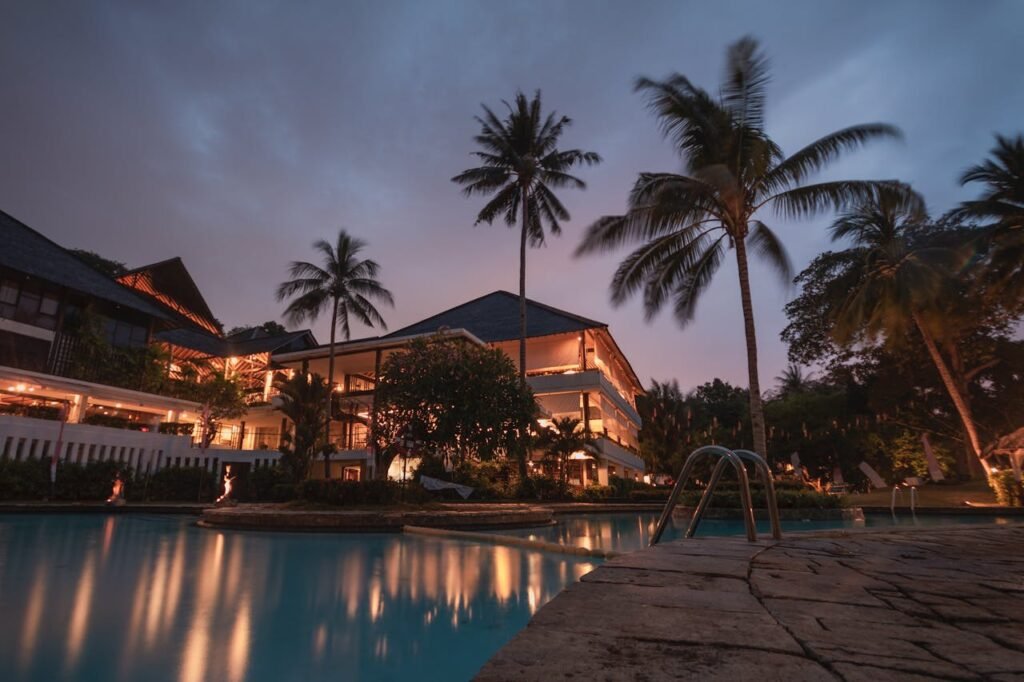
What are the steps to incorporate a hotel in Nepal?
To incorporate a hotel in Nepal, the following steps must be followed:
- Company Registration: Register a company with the Office of the Company Registrar.
- Site Selection: Choose a suitable location for the hotel.
- Approvals: Obtain necessary approvals from local authorities and the Department of Tourism.
- Business License: Apply for a tourism business license from the Ministry of Tourism.
- Tax Registration: Register for tax with the Inland Revenue Department.
- Staff Recruitment: Hire required staff and comply with labor laws.
- Compliance: Ensure compliance with all local laws and regulations.
What types of hotels can be incorporated in Nepal?
Various types of hotels can be incorporated in Nepal, including:
- Star Hotels: These include luxury hotels with extensive facilities and services.
- Tourist Standard Hotels: Mid-range hotels catering primarily to tourists.
- Resort Hotels: Located in scenic or tourist areas, offering recreational facilities.
- Budget Hotels: Economical lodging options for budget-conscious travelers.
- Boutique Hotels: Small, stylish hotels with unique decor and personalized service.
- Heritage Hotels: Converted from historical buildings, offering cultural experiences.
Each type must comply with specific standards and regulations set by the Department of Tourism.
Can foreigners own hotels in Nepal?
Yes, foreigners can own hotels in Nepal under certain conditions:
- Investment Approval: Foreign investment in hotels requires approval from the Department of Industry.
- Legal Entity: Foreign investors must establish a legal entity in Nepal to own property.
- Tourism Sector: Hotels must contribute to Nepal’s tourism industry and align with national priorities.
- Regulations: Foreign ownership is subject to regulations under the Foreign Investment and Technology Transfer Act.
- Partnerships: Foreign investors can also form partnerships with Nepali citizens or entities.
- Compliance: Owners must comply with all local laws, including labor and tax regulations.
What are the regulatory requirements for hotel incorporation?
The regulatory requirements for incorporating a hotel in Nepal include:
- Company Registration: Register as a business entity with the Company Registrar’s Office.
- Tourism License: Obtain a tourism business license from the Ministry of Tourism.
- Building Permits: Obtain necessary permits from local authorities for construction and operation.
- Environmental Clearance: Obtain clearance from the Department of Environment for environmental impact.
- Tax Registration: Register with the Inland Revenue Department and comply with tax laws.
- Labor Laws: Comply with labor laws regarding employment, wages, and working conditions.
- Health and Safety: Ensure compliance with health and safety standards for guests and employees.
How much capital is required to incorporate a hotel?
The capital required to incorporate a hotel in Nepal varies depending on the scale and type of hotel planned. Generally, the capital should be sufficient to cover expenses such as land acquisition, construction or renovation costs, furniture and fixtures, initial operating expenses, and regulatory fees. Specific amounts can range widely; for example, luxury hotels may require significantly higher capital investment compared to budget or boutique hotels. Additionally, the capital should meet minimum thresholds set by the Department of Industry and other regulatory bodies for foreign investment if applicable. It’s advisable to consult with financial advisors and legal experts to determine the exact capital requirements based on the planned size and scope of the hotel project.
Are there specific locations suitable for hotel incorporation?
In Nepal, specific locations suitable for hotel incorporation are primarily determined by tourism potential, accessibility, and local regulations. Popular tourist destinations such as Kathmandu Valley, Pokhara, Chitwan, Lumbini, and trekking regions like Everest and Annapurna are highly sought after. These locations offer natural beauty, cultural attractions, and infrastructure supportive of tourism. However, potential hoteliers must consider zoning regulations, environmental impact assessments, and local community dynamics before finalizing a location. Government agencies like the Department of Tourism and local municipalities can provide guidance on suitable locations and zoning requirements to ensure compliance with all applicable laws.
What permits and licenses are needed for hotel incorporation?
To incorporate a hotel in Nepal, several permits and licenses are essential. These include:
Company Registration: Registering the hotel as a legal entity with the Company Registrar’s Office.
Tourism License: Obtaining a tourism business license from the Ministry of Tourism to operate as a hospitality provider.
Building Permit: Acquiring a building permit from local authorities for construction or renovation.
Environmental Clearance: Securing environmental clearance from the Department of Environment, ensuring compliance with environmental standards.
Health and Safety Certificates: Obtaining health and safety certificates to ensure compliance with public health regulations.
Tax Registration: Registering with the Inland Revenue Department and obtaining tax clearance certificates.
Compliance with these permits and licenses is crucial for lawful operation and to avoid penalties or legal issues.
Can hotels offer shares to the public?

Yes, hotels in Nepal can offer shares to the public through initial public offerings (IPOs) or private placements, subject to regulatory approval and compliance with the Companies Act and Securities Act. Offering shares allows hotels to raise capital from public investors to fund expansion, renovation, or other business initiatives. The process involves preparing a prospectus detailing the hotel’s financial status, business operations, and management team for potential investors. Before proceeding, hotels must ensure they meet all legal requirements set by the Securities Board of Nepal (SEBON) and other regulatory bodies. Publicly offering shares can enhance transparency, attract investment, and increase the hotel’s visibility in the market, but it requires careful planning and adherence to regulatory guidelines to protect investor interests and maintain legal compliance.
How to draft the memorandum and articles for a hotel company?
Drafting the memorandum and articles for a hotel company in Nepal involves outlining its fundamental structure and operations. The memorandum defines the hotel’s objectives, scope of activities, and its relationship with shareholders and the public. It must include details such as the company’s name, registered office, capital structure, and the types of shares it can issue. Articles of Association, on the other hand, outline internal management rules, shareholder rights, board composition, and decision-making processes. When drafting these documents, it’s crucial to adhere to the Companies Act and regulations set by the Office of the Company Registrar to ensure legality and compliance. Consulting legal professionals experienced in corporate law can help navigate the intricacies of drafting these foundational documents accurately.
What are the tax implications for hotels in Nepal?
Hotels in Nepal are subject to various tax implications, including income tax, value-added tax (VAT), and local taxes. Income tax is levied on profits earned from hotel operations, with rates varying based on the income bracket and legal status of the hotel entity. VAT applies to goods and services provided by hotels, such as accommodation, food, and beverages, at a standard rate. Additionally, local taxes may be imposed by municipalities for operating within their jurisdiction. Hotels must register with the Inland Revenue Department for tax purposes and comply with filing deadlines and reporting requirements. Understanding and managing these tax obligations is crucial for financial planning and compliance with Nepal’s tax laws to avoid penalties or legal issues.
Can hotels operate internationally?
Hotels in Nepal can operate internationally by establishing partnerships, franchises, or direct ownership abroad, subject to foreign investment regulations and international business laws. Many Nepali hotel chains and boutique hotels have expanded into neighboring countries and global tourist destinations, leveraging Nepal’s reputation as a tourist hotspot. Hotels must comply with host country regulations, obtain necessary permits and licenses, and adhere to international standards for hospitality and tourism. Operating internationally offers opportunities for growth, diversification, and brand recognition but requires careful market research, strategic planning, and legal compliance to navigate cultural, regulatory, and competitive challenges in foreign markets successfully.
Hotel Association of Nepal Membership
Are there any restrictions on hotel ownership in Nepal?
In Nepal, restrictions on hotel ownership primarily pertain to foreign investors. Foreign ownership of hotels requires approval from the Department of Industry under the Foreign Investment and Technology Transfer Act. Foreign investors can hold up to 100% ownership in hotels in certain categories, subject to prescribed conditions and investment thresholds. However, ownership of land by foreigners for hotel purposes is generally prohibited unless done through leasehold arrangements with specific provisions. Additionally, hotels must comply with local zoning regulations, environmental laws, and labor regulations applicable to all businesses operating within Nepal. Understanding these ownership restrictions and regulatory frameworks is essential for investors and hoteliers planning to establish or expand hotel operations in Nepal, ensuring compliance with legal requirements and facilitating smooth business operations.
What are the compliance requirements for hotels?
Hotels in Nepal must adhere to various compliance requirements to operate legally. These include obtaining a tourism business license from the Ministry of Tourism, registering as a legal entity with the Company Registrar, and securing necessary permits such as building permits and environmental clearances. Hotels must comply with tax obligations by registering with the Inland Revenue Department and filing tax returns on time. They must also adhere to labor laws regarding employment contracts, wages, and working conditions for staff. Additionally, hotels must maintain health and safety standards for guests and employees, obtain local business licenses, and comply with local zoning regulations. Regular inspections by regulatory authorities ensure compliance with these requirements, promoting lawful operations and contributing to the overall development of Nepal’s hospitality sector.
How to register trademarks and intellectual property for a hotel?
To protect trademarks and intellectual property (IP) for a hotel in Nepal, owners should file an application with the Department of Industry’s Intellectual Property Division. The application should include details of the trademark or IP to be registered, such as logos, brand names, and service marks used by the hotel. Once filed, the application undergoes examination to ensure it meets legal criteria for registration. Upon approval, the trademark or IP is published in the official gazette and registered in the IP registry. Registration grants exclusive rights to use, license, or sell the trademark or IP, protecting it from unauthorized use or infringement. Legal advisors specializing in IP law can provide guidance on the registration process, ensuring compliance with Nepal’s Intellectual Property Act and safeguarding the hotel’s brand identity and assets.
Can hotels participate in tourism initiatives or projects?
Yes, hotels in Nepal can actively participate in tourism initiatives and projects aimed at promoting tourism growth and sustainable development. Participation can include partnering with tourism boards, local governments, and non-governmental organizations (NGOs) to support initiatives such as cultural heritage preservation, environmental conservation, and community tourism projects. Hotels can also collaborate with tourism promotion agencies to attract international visitors through marketing campaigns, events, and promotional activities. By engaging in such initiatives, hotels contribute to Nepal’s tourism sector’s overall development, enhancing destination appeal, improving infrastructure, and creating employment opportunities. Participation in tourism projects allows hotels to showcase unique cultural offerings, support local economies, and foster sustainable tourism practices that benefit communities and preserve Nepal’s natural and cultural heritage for future generations.
How does incorporating a hotel contribute to tourism in Nepal?
Incorporating a hotel in Nepal contributes significantly to the country’s tourism sector by providing accommodation options that cater to diverse traveler preferences and budgets. Hotels attract domestic and international tourists, supporting Nepal’s economy through revenue generation, job creation, and infrastructure development. They play a crucial role in promoting tourism by offering hospitality services, organizing tours, and showcasing local culture and attractions to guests. Moreover, hotels contribute to destination branding and marketing efforts, enhancing Nepal’s global tourism profile. By adhering to quality standards, sustainability practices, and cultural sensitivity, hotels bolster Nepal’s reputation as a preferred tourist destination. Overall, the presence of well-established hotels enriches the tourism experience, encourages longer stays, and stimulates growth in related sectors such as transportation, dining, and retail, thereby contributing to the overall socio-economic development of Nepal.
What are the advantages of investing in Nepalese hotels?
Investing in Nepalese hotels offers several advantages. Nepal’s rich cultural heritage and diverse landscapes attract a growing number of tourists each year, presenting a lucrative market for hospitality businesses. Investors can capitalize on this demand by establishing hotels in popular tourist destinations like Kathmandu, Pokhara, and Lumbini. Additionally, Nepal’s government has implemented favorable policies to promote foreign investment, allowing investors to benefit from relaxed regulations and tax incentives. Furthermore, investing in hotels contributes to the country’s economic growth by creating job opportunities and supporting local businesses, thereby fostering sustainable development in tourism infrastructure.
Are there any incentives for hotel investors in Nepal?
Yes, Nepal provides incentives to encourage investment in the hotel sector. Foreign investors can benefit from tax exemptions on income generated from hotel operations for a specified period. Additionally, the government offers duty-free privileges for importing hotel equipment and materials, reducing initial setup costs. Furthermore, investors may qualify for financial incentives, such as low-interest loans and grants, through various government schemes aimed at promoting tourism and hospitality development. These incentives aim to attract both domestic and international investors, stimulating growth in the hotel industry and supporting Nepal’s broader economic objectives.
How to ensure quality standards and guest satisfaction in hotels?
Ensuring quality standards and guest satisfaction in hotels in Nepal involves implementing rigorous quality control measures and maintaining high service standards. Hotels should develop and adhere to comprehensive operational procedures covering cleanliness, hygiene, staff training, and customer service. Regular inspections and audits can help identify areas for improvement and ensure compliance with national and international hospitality standards. Additionally, soliciting and acting upon guest feedback plays a crucial role in continuously enhancing service quality and meeting guest expectations. Training programs for staff on hospitality etiquette, communication skills, and problem-solving contribute to creating a positive guest experience, fostering loyalty, and building a strong reputation in the competitive hospitality industry.
Can hotels collaborate with local communities or organizations for development?
Yes, hotels in Nepal can collaborate with local communities and organizations to contribute to sustainable development initiatives. Collaboration can involve partnerships with community-based organizations, NGOs, and local governments to support education, healthcare, environmental conservation, and cultural preservation projects. Hotels can engage in corporate social responsibility (CSR) activities such as sponsoring community events, promoting local handicrafts, or implementing eco-friendly practices.
Establishing Hotel in Nepal
What licenses are needed to open a hotel?
Hotels need business registration, tourism license, and local authority permits.
Are there star rating systems for hotels in Nepal?
Yes, the Hotel Association Nepal conducts star ratings for hotels.
Can foreigners own hotels in Nepal?
Foreigners can own hotels, subject to foreign investment regulations.
What taxes apply to hotels in Nepal?
Hotels are subject to VAT, income tax, and tourism service fees.
Are there specific building codes for hotels?
Yes, hotels must comply with specific building and fire safety regulations.







